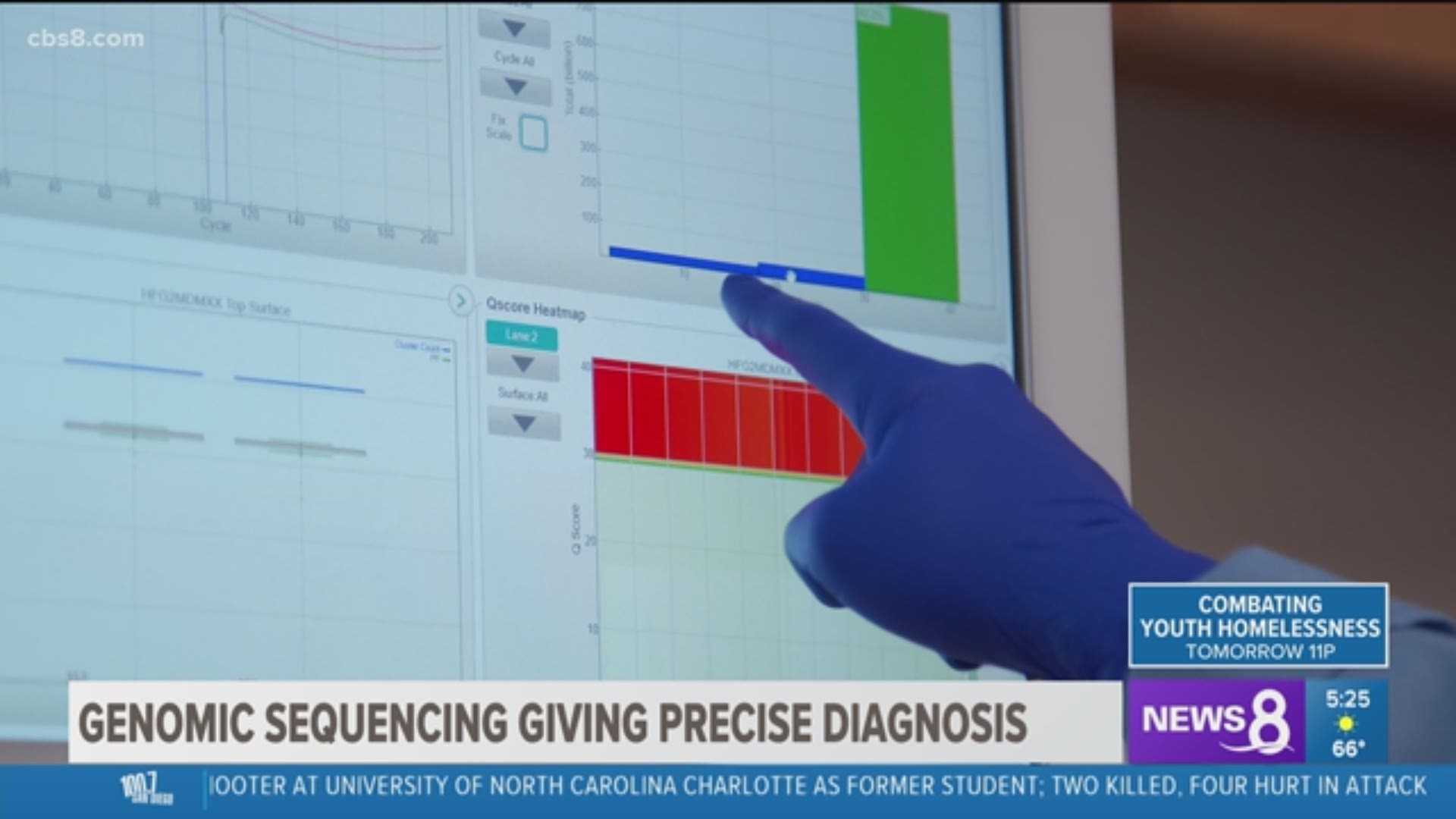SAN DIEGO — A few years ago, a San Diego baby named Rylee was paralyzed for no apparent reason, but genomic sequencing was able to deliver hope and changed the family’s life around.
As a baby, Rylee was not hitting any normal milestones. She couldn’t even move.
“She just looked like a vegetable child. Every time the doctor said she was normal and couldn’t find anything wrong. Clearly, she was not normal," said Robert Supplee, Rylee’s father.
Rylee’s parents took her to several doctors who did not know specifically what was causing her condition.
“We did not know if she would walk or talk or even move,” said Rylee's mother, Amy Jaeger.
Finally, Dr. Jennifer Friedman at Rady Children’s Hospital looked at Rylee.
“She started developing tremors and developmental delays. She couldn't move most parts of her body other than her eyes and tongue,” said Dr. Friedman.
Dr. Friedman ran a genome sequencing test which finally gave Rylee and her family a precise diagnosis so she could receive proper treatment. As it turned out, Rylee had a genetic mutation and needed the same medicine doctors give to Parkinson patients.
“Within the first day of taking the medication, we could see movement in her hands,” said Supplee.
Little by little, Rylee was able to sit, then crawl. Now at the age of three, she is running and playing.
Rylee is still a little delayed, but life has been transformed thanks to whole genome sequencing – made possible by Illumina and Rady Children’s Institute for Genomic Medicine.
“It is really helped our family [and] Rylee get to where she needs to be today,” said Jaeger.
Last month, Rylee’s mom gave birth to a baby boy who was sequenced to see if he carried the same genetic mutation. The results came back negative. He is not a carrier.

